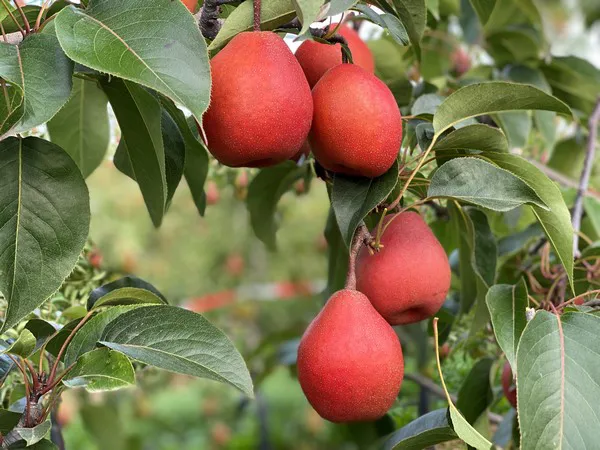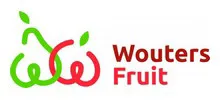Fruithandel Wouters began sorting its new PiqaBoo® crop this week. It is the first fully-fledged crop, and the Belgian company sees plenty of potential in it. "Genetically, it's a pear, but when people taste it blind, no one says, 'this is a pear.' It's a new type of fruit," Kris Wouters begins.

PiqaBoo® originally comes from New Zealand but is slowly finding its way to other markets, including Europe. "They planted the first PiqaBoo® trees in New Zealand about ten years ago and now have about 70 hectares. The variety was developed differently from others. Decades ago, they began collecting and crossing different varieties, old, new, Asian, European, etc. They wanted to develop a pear you no longer need to ripen."
"The disadvantage of the traditional pears we know these days is that they don't taste good if they're not fully ripened. When they are ripe, they taste good but become mushy when they're overripe. Pears are perfect to eat for only a short time, which consumers find challenging to gauge correctly," says Kris.
"With the PiqaBoo®, they wanted a variety that was more like the apple. A pear that you don't need to ripen perfectly and that remains crisp for a long time. The PiqaBoo® succeeds in that. We stored them warm for 14 days, and they barely changed. The color remained the same, and they stayed firm. Thus, people will never again get a pear that's too ripe or too hard."

New fruit
The trader says he considers the PiqaBoo® a new sort of fruit. "It's not a stand-alone. It's a new set of developed varieties; you have to think of it as the first name, Piqa, and the last name, Boo. Other similar types of pears are being developed with the same characteristics but with a different flavor or color. A whole new range of Piqa pears. It took quite a long time, but I sincerely believe with this pear's introduction, we've set a new course," Kris explains.
"It's a risky, costly, and extremely labor-intensive crop, so it's only truly interesting because we discovered it can be sold so expensively. It wouldn't make economic sense to start with this variety at standard pear prices. It's a different type of tree, which must be treated differently. We had to learn a lot. The advantage, however, is that these trees only grow in colder climates. It's harder for growers in southern Europe or Australia."
"The fruit turns orange and is no longer beautifully red-blushed. Our trees are now seven years old, and we think we've mastered the cultivation, but that will become apparent in the next few years. If we succeed, we'll reap the benefits, literally and figuratively. They're not prone to the primary fungi, either, due to their genetics being entirely different from other pears," says Wouters.

Belgian and German markets
This year's first fully-fledged harvest looks excellent, he says. "We could pick nice volumes with almost no rejects. There's also plenty of interest already. From New Zealand, they go mainly to the Asian market, where it's equally appreciated. There's no doubt about that. So last year, we sold to China and Vietnam, but we didn't have the volumes to deliver to supermarkets. This year, for the first time, we will. They're at Edeka in Germany, and in Belgium, Delhaize will offer them. It'll be interesting to see how they do."
It is usually mostly Asian consumers who value red pears. "Yet, these pears have so much potential on the European market, too. I'll be honest: some people don't like it, but others have never eaten anything so delicious. In New Zealand, they're compared to kiwis. When these were first introduced, people didn't know what to make of them. I dare not think we'll match the kiwi's success, but we're working very hard to make the PiqaBoo® a success story as well," Kris enthuses.
 Hang tags
Hang tags
Fruithandel Wouters expects to offer the PiqaBoo® for four to five weeks. "It will be exciting to see what the response will be. We don't yet have the volumes to offer it all year, but these weeks will show if the general public picks them up."
"Regardless, there's plenty of interest. Its color is, of course, distinctive," adds Kris, "which makes people curious. We've also added special hang tags."
"People can scan the QR code to find more information about the pears on the product's website. We're very confident about it and will definitely expand it in the coming years. We're putting a lot of work into its flavor and are still learning. It will gradually gain ground," Kris concludes.
For more information:
Kris Wouters
Fruithandel Wouters
21 Kasteellaan
3454, Rummen, Belgium
Tel: +32 (0) 475 283 696
Email: kris@woutersfruit.be
Website: www.woutersfruit.be
